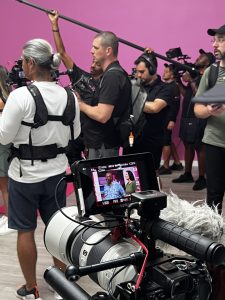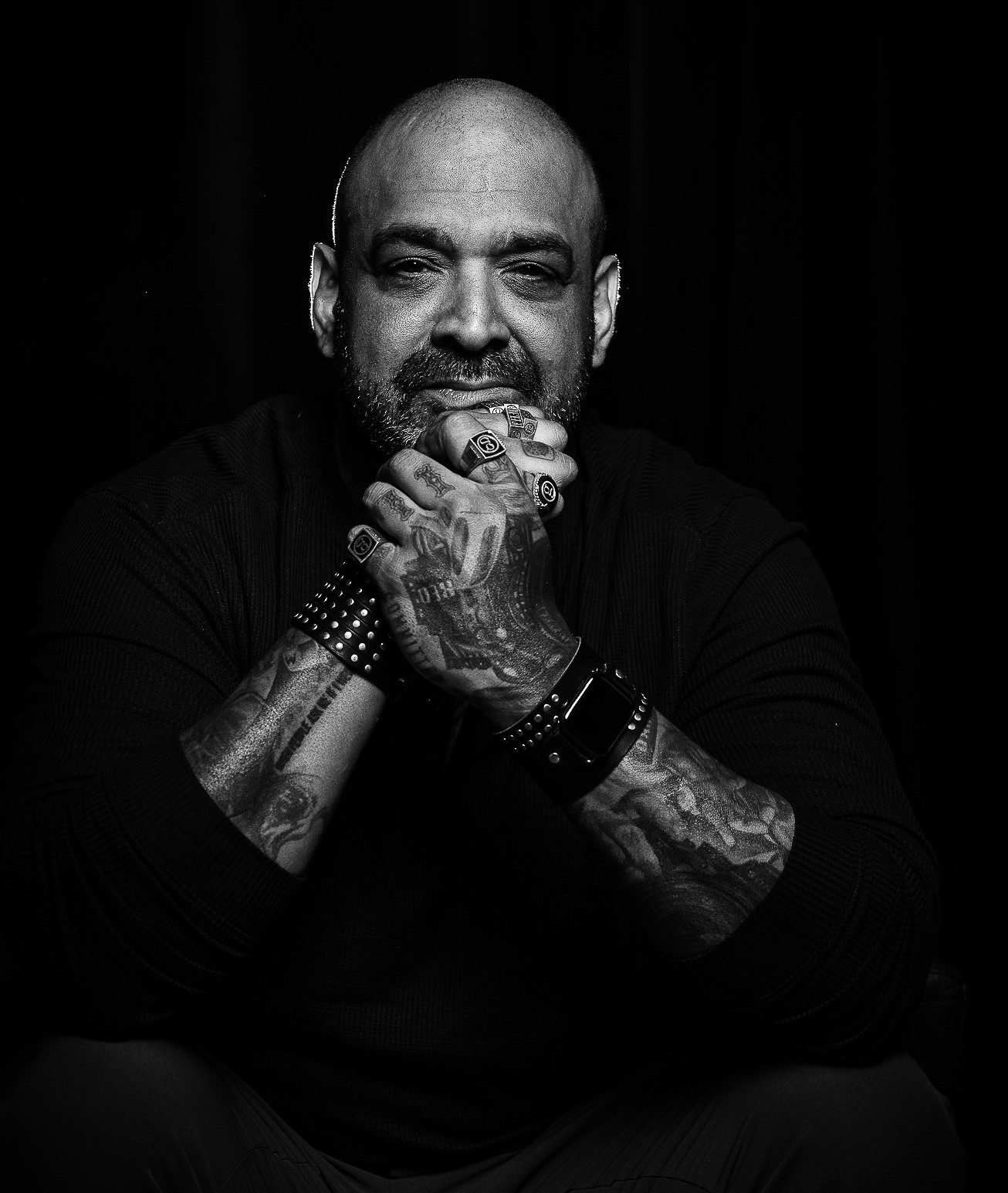Global Documentary Film Production | Services by Nathan Taupez Scinto
At Think Global Media Group, we understand that every story requires the right format to connect with audiences. Documentary filmmaking is a versatile medium, offering a variety of styles and structures that shape how stories are told. Whether your goal is to educate, inspire, or entertain, selecting the proper format ensures your documentary achieves maximum impact. Our team provides end-to-end documentary production services, guiding projects from concept to distribution.
20 Documentary Film Formats
 Expository Documentary – Uses narration and facts to present a clear argument or perspective.
Expository Documentary – Uses narration and facts to present a clear argument or perspective.- Observational Documentary – Captures events as they unfold naturally, often called “fly-on-the-wall” style.
- Participatory Documentary – The filmmaker interacts with subjects and becomes part of the story.
- Poetic Documentary – Emphasizes visual and emotional experience over traditional narrative.
- Performative Documentary – Focuses on the filmmaker’s personal experience or perspective.
- Reflexive Documentary – Explores the process of filmmaking itself and challenges traditional storytelling.
- Historical Documentary – Examines past events using archival footage, interviews, and research.
- Biographical Documentary – Profiles an individual, exploring their life and impact.
- Travel Documentary – Showcases cultures, landscapes, and global experiences.
- Music Documentary – Explores musicians, bands, or the creative process behind music.
- Nature & Wildlife Documentary – Captures the natural world and promotes conservation awareness.
- Sports Documentary – Chronicles athletes, teams, and inspirational moments in sports.
- True Crime Documentary – Investigates real-life crimes with evidence, interviews, and reenactments.
- Political Documentary – Analyzes political events, leaders, and societal issues.
- Social Impact Documentary – Highlights pressing social issues to inspire action or awareness.
- Science & Technology Documentary – Explains innovations, discoveries, and their influence on society.
- Cultural Documentary – Preserves traditions, art, and cultural practices.
- Investigative Documentary – Delves deeply into hidden truths and uncovers corruption or controversy.
- Educational Documentary – Designed for schools, training programs, or instructional purposes.
- Hybrid Documentary – Combines factual storytelling with scripted or experimental elements.
Why the Right Format Matters
Each documentary format offers unique advantages. For example, biographical documentaries humanize individuals, while social impact films spark conversation and change. Choosing the correct format determines the audience experience and the effectiveness of the storytelling.
The Steps to Producing a Documentary Film Production
At Think Global Media Group, we specialize in delivering high-quality documentary film production services that bring real stories to life. Producing a documentary is a multi-stage process that requires careful planning, creative vision, and professional execution. Our team guides clients through each step, ensuring projects are completed on time, on budget, and with cinematic excellence.
Step 1: Concept Development
Every documentary begins with a strong idea. During concept development, we collaborate with clients to define the story, its purpose, and the intended audience. This phase lays the foundation for a compelling narrative that drives every subsequent production decision.
Step 2: Research and Pre-Production
Thorough research is critical to crafting an authentic documentary. Our team identifies subjects, gathers archival materials, scouts locations, and develops detailed production plans. Pre-production also includes budgeting, scheduling, and assembling the right crew, ensuring a smooth filming process.
Step 3: Production (Filming)
During production, we capture interviews, events, and b-roll footage that bring the story to life. Using professional cinematography, sound, and lighting techniques, we ensure that every scene aligns with the project’s vision and maintains high production value.
Step 4: Post-Production
Post-production is where the documentary takes shape. Our editors organize raw footage, structure the narrative, integrate sound design, music, graphics, and color grading. This stage transforms the material into a polished, engaging documentary ready for audiences.
Step 5: Distribution Strategy
A successful documentary reaches the right audience. Think Global Media Group assists with distribution planning across film festivals, streaming platforms, television networks, and digital campaigns, maximizing both reach and impact.
Differences Between a Documentary Film Producer vs a Documentary Film Director
At Think Global Media Group, we understand that producing a high-quality documentary requires collaboration between multiple roles, with the producer and director playing distinct yet complementary parts. Both positions are essential, but they focus on different aspects of the production process, ensuring that each project is both professionally managed and creatively compelling.
Role of a Documentary Film Producer
 A documentary film producer oversees the entire production process, managing budgets, schedules, crews, and resources. They ensure that projects are feasible, on track, and delivered on time. Key responsibilities include:
A documentary film producer oversees the entire production process, managing budgets, schedules, crews, and resources. They ensure that projects are feasible, on track, and delivered on time. Key responsibilities include:
- Developing the project concept and story outline
- Securing funding and managing finances
- Hiring crew and coordinating logistics
- Supervising production and post-production processes
- Planning distribution and marketing strategies
Benefits of a Producer: Producers allow the creative team to focus on storytelling while ensuring operational efficiency, cost control, and professional execution. Their expertise ensures the documentary reaches its full potential without logistical or financial setbacks.
Role of a Documentary Film Director
A documentary film director is responsible for the creative vision and narrative flow of the film. They shape how the story is told, guiding cinematography, interviews, and the overall artistic approach. Key responsibilities include:
- Establishing the visual style and tone of the documentary
- Directing on-location filming and interviews
- Collaborating with editors during post-production to refine storytelling
- Making creative decisions that enhance audience engagement
Benefits of a Director: Directors bring the story to life, ensuring emotional resonance, visual appeal, and narrative coherence. Their guidance turns raw footage into a captivating and meaningful viewing experience.
Why Both Roles Are Essential
While the producer manages logistics, finances, and overall project strategy, the director focuses on storytelling, creative execution, and audience engagement. At Think Global Media Group, we integrate these roles seamlessly to ensure that every documentary is professionally produced and artistically compelling, delivering films that inform, inspire, and captivate audiences.
Partner with Think Global Media Group
Choosing Think Global Media Group provides access to experienced producers and directors who collaborate closely to bring your vision to life. From initial concept development to post-production and distribution, we provide full-service documentary production tailored to your goals.
Let’s Get Started!
At Nathan Taupez’s Global Documentary Film Production, every project is crafted with precision, creativity, and professional expertise. From concept development to post-production and distribution, Nathan and his team ensure that each documentary delivers compelling storytelling, cinematic quality, and maximum audience impact, making every project a memorable and engaging viewing experience.
Ready to produce your documentary film? Contact Think Global Media Group today.
(888) 653.2688
Globalfilmzstudios.com | Globalfilmz.com | Info@GlobalFilmz.com



Recent Comments